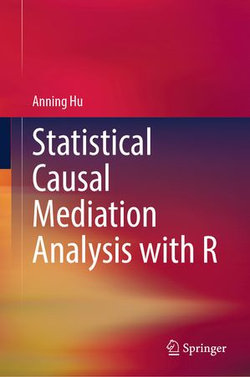
-
Books
-
Education
-
eBooks
-
Audio Books
-
Film & TV
-
Calendars, Diaries & Stationery
-
Giftshop

This book comprehensively covers various causal mediation analysis (CMA) methods developed across multiple fields, organizing them into a reader-friendly progression of methodological advancements. Interest in the mechanisms that form causal relationships is widespread across various fields,… more
This book comprehensively covers various causal mediation analysis (CMA) methods developed across multiple fields, organizing them into a reader-friendly progression of methodological advancements. Interest in the mechanisms that form causal relationships is widespread across various fields, including sociology, demography, economics, political science, psychology, epidemiology, public health, and educational studies, to name a few. Compared to the well-established research focusing on bivariate causality, CMA—the study of mediation mechanisms within the framework of causal inference—requires more complex identification assumptions, estimation methods, and nuanced interpretations of the results. Therefore, to conduct CMA with rigor, one must acquaint themselves with a distinct and systematic body of knowledge that is clearly separate from traditional linear regression modeling or structural equation modelling (SEM). Against this backdrop, the objectives of the proposed book are twofold. Firstly, it aims to offer readers an approachable and engaging explanation of the statistical theories underpinning the diverse methods of CMA. Specifically, we highlight the crucial mediation identification assumptions—a critical aspect frequently neglected by practitioners and educators. Secondly, the book intends to guide readers through detailed, step-by-step examples of applying CMA methods in practical research contexts. Through this approach, readers are anticipated to gain practical skills necessary for addressing their own research or teaching challenges. This book begins with traditional methods that rely on differences or products of coefficients in linear regression modeling, moves on to CMA involving a single mediator, and advances to more sophisticated approaches that manage parallel or sequentially ordered mediators. Additionally, sensitivity analysis is introduced as an important supplementary analytical step. Thus, the content spans from conventional CMA tools to the forefront methodologies that have emerged in recent decades. The book is designed to be self-sufficient, characterized by a balanced and well-integrated presentation of both theory and application.
lessThis item is delivered digitally
Thanks for reviewing Statistical Causal Mediation Analysis with R. We will process your review. Accepted reviews will be posted within 3-7 business days.
Be the first to know, stay up to date with what's trending and get staff picks in your inbox with our newsletter


Public: Allow anyone to view or shop your List
Private: No one can view or shop your List
We have kept your A&R details for your new Angus & Robertson account
We also noticed that you have previously shopped at Bookworld. Would you like us to keep your Bookworld order history?
We also noticed that you have an account on Bookworld. Would you like us to keep your Bookworld details, including delivery addresses, order history and citizenship information?
Share This eBook